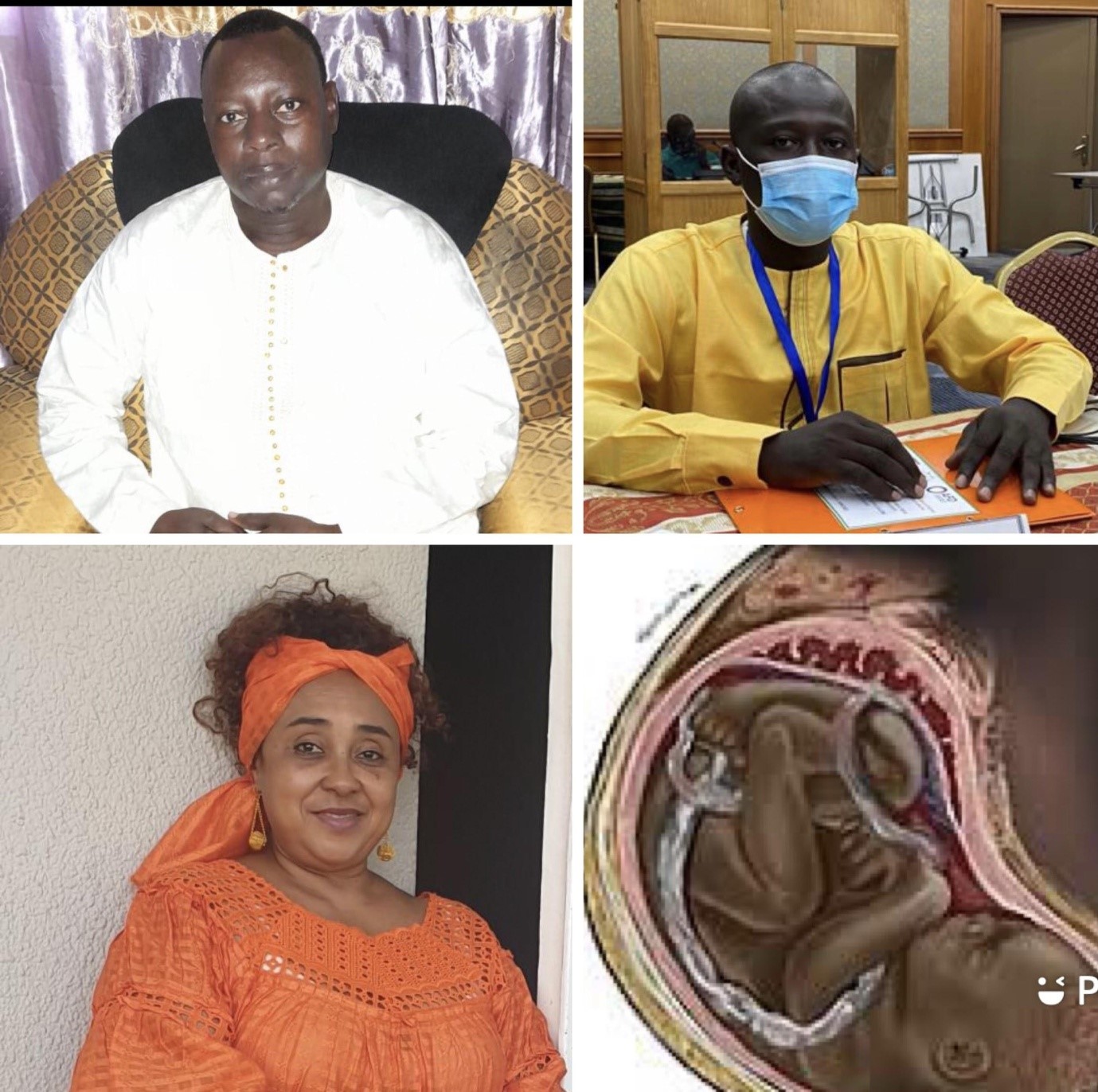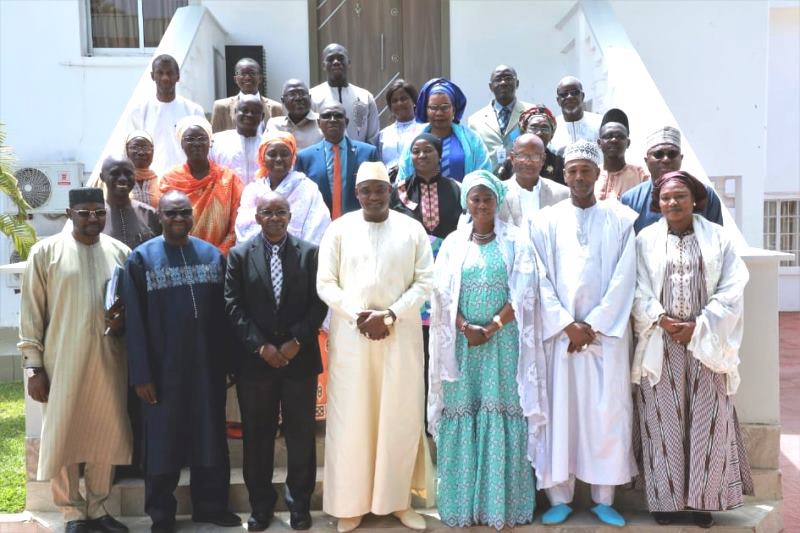By NyimaSillah
As infertility condition continuing to cause inhibition to some married women in their relationship, FalluSowe, National Coordinator of Network Against Gender-Based Violence (NGBV) has enjoined fellow activists, the Government of the Gambia, and the Ministry of Health to advocate and enlighten the general public, especially couples about infertility.
In an exclusive interview, Mr. Sowe disclosed that infertility has a large connection with Gender-Based Violence, especially in cultures of The Gambia where women are expected, after marriage, to have children as one of the fundamental roles.
For a better understanding of infertility, “activists in The Gambia should start to incorporate the issue of infertility in their sensitization programs so that anytime they talk about different cases of gender-based violence, they will include infertility as one of the things that can cause Gender-Based Violence,” he expressed.
More so, there is a need for Activists to inform the community about what they can do once they realise that they are married for one or two years without a child and this should include advising them to visit the hospital for a checkup. This will help them to know where the problem lies to allow possible solutions rather than abusing, torturing, and battering coupled with emotional trauma, he explained.
However, “Stakeholders like the Ministry of Health have a great role to play, infertility most of the time is a health-related problem that sometimes can happen as a result of early marriage, FGM, Rape or STI so all those issues are health-related issues. Therefore, health programming should look at infertility and midstream it to their programs. Nurses in the clinic and community level should also sensitize people so that the impact of infertility issues is addressed,” Sowe added.
Once that is done, he said, both genders would understand the causes of infertility and know that there could be a solution to it. Adding that would be easy for women and both genders will understand how they are both responsible for childbearing.
Donor agencies, organisations, the UN agencies, or people that are funding GBV programs and projects should also look into how they could incorporate the issue of infertility into their funding because sometimes what activists do and what some government institutions do is dictated by the funders, the National Coordinator explained.
According to him, “when funding received is meant for FGM, your hands are tight, as it will be difficult to talk about other issues apart from FGM. If they give funds for child marriage programs, activists will only do programs in line with child marriage. This always makes it difficult for organisers and activists to explore other issues.”
For a solution, the government can sit with UN agencies and make them understand that the issue of infertility is a priority for Gambians and therefore they should put funds to support infertility programs. Once the government puts it as a priority, donors, especially UN agencies, will also include it in their plan as a priority area.
Mr. Sowe stated that if infertility is not mentioned in the national document as a priority area, then it becomes a problem, the UN agencies and other donors look at what the government puts in as a priority that is why the Ministry should ensure that the issue of infertility surfaces in the National Development Plan as a priority and support infertility advocacy programs in The Gambia.
“I also think that in our laws, even though it is not directly saying women of infertility should not be discriminated, there are enough laws to address issues of discrimination of any kind which includes women that are accused of being infertile. So, for the laws I don’t see much problem, probably the policies and plans need to capture it very clearly so that people factor it in their programs,” he observed.
More so, he said, one of the ways to handle infertility in society is through sensitization to create awareness in the communities on the causes of infertility and to make people understand that infertility is not all the time fault of women.
“Media houses should also amplify the voices of people related to infertility issues because the media is powerful. Once the media starts to write about it, interviewing people, sensitizations, having panel discussions it goes a long way to remind people about infertility,”
“As far as my organization is a concern, infertility is an issue that is of priority because it can cause gender-based violence and it is also a consequence of GBV. Therefore is an important factor that needs to be factored in our programs and if we have an opportunity to have funding to raise awareness on issues of infertility, we are going to midstream the issue of infertility in our awareness program, especially in community level,” Sowe said
He, therefore, advised the general public to go to the hospital for a checkup and know the problem, find a solution rather than labeling and emotionally abusing women who are usually accused of being infertile in the communities.
VICTIMS OF INFERTILITY
Comment from the victims of infertility ranges from one to another. As they all have stories to tell, one of them narrated that she was happily married for over 10 years and her husband never abuse her for not having a child. But sometimes ago, the husband’s family members forced him to marry another wife simply because she could not bear him a child.
“We did several checkups and different treatments but there was no improvement. In the end, my husband gave up and agreed to marry a second wife against his own will,”
“My life was like a living hell because society and my colleagues always point a finger at me saying I am an infertile wife. I went through that trauma for ages and at some point, I thought I would never be a mother in my life until I got married to another man in my 40s and got twins which I still cannot believe,” Victim said.
Another victim also said: she got married at a very early age a few years later she realised some changes in her husband, but when she asked why he has changed suddenly, the husband will not answer as he always ignored her deliberately. She said come one day, the husband opened up and said if she cannot give him a child she should go back to her father’s home.
“My husband always denies me fish money whenever I see my menstruation because he knows that I cannot be pregnant while seeing my menstruation, always stressed and harassed me unnecessarily. We did several treatments but a child is a gift from Allah which men don’t understand,” she said.
But “I packed my things and join my mother in the village who did all the cultural charms called “Kanyangleh” and they gave me a name called “Suntojung” after that, I got pregnant twice but all my kids passed away until the last one I finally delivered a baby girl I am grateful to Allah,” the victim explained.
Gynecologist View
According to Dr. Musa Marena, an Obstetrician and Gynecologist at the Edwards Francis Small Teaching Hospital, certain things can cause infertility or the infections to reach the level of the tube this includes inserting TABA in the vaginas, the TABA might not be hygienic and you don’t know what it includes.
Dr. Marena noted that other things cause infertility, which among is not living together of the couple. That is, staying together for a short period of the holiday with the hope of having pregnant, but noting that in three months, two out of ten will be able to get pregnant which is about 20% so if the husband just comes for one month or three weeks it is difficult for the partner to get pregnant, a very common thing nowadays.
“In other to reduce the accuracy of infertility is to have sex regularly or every two days or at least every three days so if you have sex at least every three days. If you want to improve your infertility you have to eat a balanced diet, vegetables, fruits especially men as well as exercise so that you don’t leave your body with too much fat and that also helps in pregnancy,” Dr. Marena explained.
He added that for some women for one reason or another they don’t ovulate which is common in women who are below the reproductive age. Meaning that they are less than fourteen or twelve years those don’t ovulate and women who have gone above the age of reproductive like 40yrs, 45yrs, or 50years are hard for them to get pregnant, too.
Activist Remarks
Ms. Yadicon Njie Eribo, an activist said in The Gambia society that soon after a woman gets married the people will start looking at her and wondering why she is not pregnant yet. As time goes on, they will start telling her painful things and also victimised in the family. “People do not understand that infertility is not just only with the woman as it could sometimes be a problem of the man,” she added.
Taking into consideration the subject matter, she said, education and sensitization are the keys to the issues of infertility. When people are aware they will do better because the problem comes from people not being aware so they hold on to superstition. “If we put programs on television and radio to educate the society then this will be a thing of the past.”
She, therefore, advised men to be sensitive to women. “Infertility is a very painful thing. Be kind and do not judge her.”
DHS Survey 2019-2020
According to the Gambia Demographic Survey (DHS) 2019-2020 report, the total fertility rate in The Gambia is 4.4 children per woman. Since 2013, fertility has decreased by more than one child from 5.6 children per woman to the current level.
The Report also said: Fertility is higher in rural areas (5.9 children per woman on average) than in urban areas (3.9 children per woman). Fertility ranges from 3.1 children per woman in Banjul to 6.4 children per woman in Kuntaur.
However, the report also stated that Fertility also varies with education and household wealth. Women with secondary education or higher have an average of 3.4 children, compared with 5.7 children among women with no education.
“Women living in the poorest households have an average of 6.0 children, compared with 3.2 children among women living in the wealthiest households,” the report stated.





